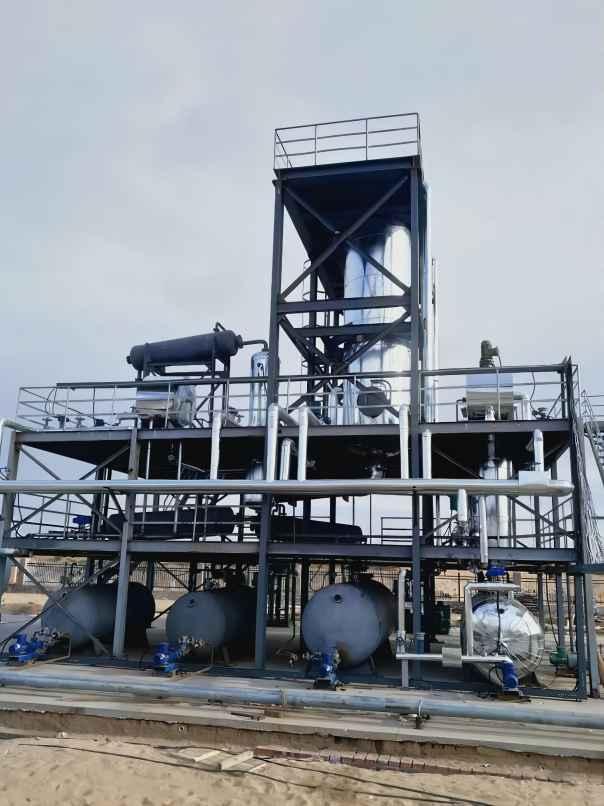Navigating Waste Oil Recovery Challenges in Developing Countries: Strategies for Sustainable Solutions

In the realm of waste management, developing countries face a unique set of challenges and opportunities when it comes to waste oil recovery. From infrastructure limitations to regulatory gaps and socio-economic factors, navigating these complexities requires innovative approaches and concerted efforts. In this article, we delve into the intricacies of waste oil recovery in developing countries, exploring both the hurdles and the pathways to sustainable solutions.
The Landscape of Waste Oil in Developing Countries
Waste oil, generated from various sources such as automotive maintenance, industrial processes, and household activities, poses significant environmental and health risks if not managed properly. In developing countries, the volume of waste oil often surpasses the capacity for safe disposal or recycling, leading to pollution of land, water, and air.
Challenges Facing Waste Oil Recovery
Infrastructure Limitations: Many developing countries lack the necessary infrastructure for efficient waste oil collection, transportation, and recycling. This includes inadequate storage facilities, limited access to specialized equipment, and insufficient transportation networks, hindering the implementation of comprehensive recovery programs.
Regulatory Gaps: Inconsistent or inadequate regulations governing waste oil management contribute to the proliferation of illegal dumping, improper disposal practices, and unregulated recycling operations. The absence of robust enforcement mechanisms further exacerbates environmental degradation and public health concerns.
Socio-Economic Factors: Socio-economic disparities, including poverty, lack of awareness, and informal employment sectors, influence waste oil management practices in developing countries. Informal collectors may resort to unsafe and environmentally harmful methods of waste oil recovery, perpetuating a cycle of pollution and socio-economic vulnerability.
Opportunities for Sustainable Solutions
Despite these challenges, there are several opportunities for promoting sustainable waste oil recovery in developing countries:
Capacity Building and Training: Investing in education and training programs for waste management professionals, local communities, and informal sector workers is crucial for building capacity and fostering a culture of responsible waste oil management. This includes training on proper collection techniques, safe handling practices, and environmentally sound recycling methods.
Public-Private Partnerships (PPPs): Collaborative efforts between government agencies, private enterprises, and non-profit organizations can leverage resources, expertise, and networks to develop integrated waste oil recovery systems. PPPs can facilitate the establishment of collection points, recycling facilities, and regulatory frameworks, while also promoting innovation and knowledge exchange.
Technology Transfer and Innovation: Transfer of appropriate technologies and innovative solutions tailored to the needs of developing countries can enhance the efficiency and effectiveness of waste oil recovery processes. This may involve adopting low-cost filtration systems, mobile recycling units, or decentralized treatment technologies that are suitable for resource-constrained settings.
Policy Reform and Enforcement: Strengthening regulatory frameworks and enforcement mechanisms is essential for promoting compliance with waste oil management standards and regulations. This includes updating legislation, establishing monitoring and enforcement agencies, and imposing penalties for non-compliance to deter illegal practices.
Conclusion
Waste oil recovery in developing countries presents both challenges and opportunities for sustainable development. By addressing infrastructure limitations, regulatory gaps, and socio-economic factors through capacity-building initiatives, public-private partnerships, technology transfer, and policy reform, it is possible to promote responsible waste oil management practices that protect the environment, safeguard public health, and contribute to the socio-economic well-being of communities. With concerted efforts and innovative approaches, waste oil recovery can become a catalyst for positive change in the global quest for environmental sustainability.
- Art
- Causes
- Crafts
- Dance
- Drinks
- Film
- Fitness
- Food
- Jogos
- Gardening
- Health
- Início
- Literature
- Music
- Networking
- Outro
- Party
- Religion
- Shopping
- Sports
- Theater
- Wellness
